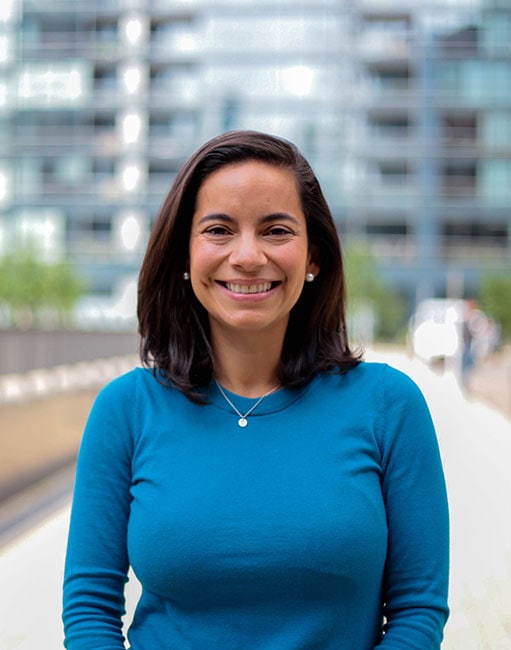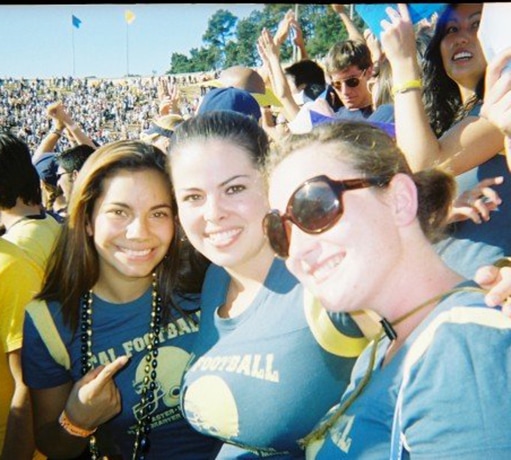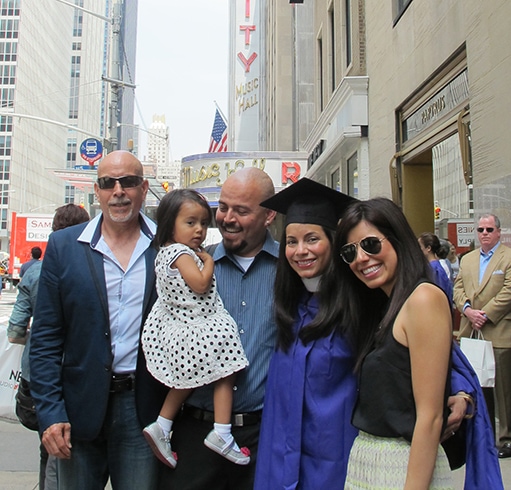Shining in My Identity
By Zuleica Lopez
October 23, 2018
Zuleica Lopez is the founding Director of Teacher Support at OneGoal in the Bay Area of California. Here she shares how her own identity, built around the strength of her family and challenged by the stereotypes of her peers, has constantly evolved.

I grew up in Huntington Park, California, a working-class community composed of predominantly Mexican immigrants, like my parents, where speaking Spanglish, celebrating birthdays with piñatas and eating tamales on Christmas Eve were the norm. And so was a life of hard work, sacrifice and resilience as I watched both my parents, who only had a 6th grade education, navigate the world within the confines available to them.
My siblings and I looked at our parents and saw a success story. And while we would have been happy to follow in their footsteps, my parents encouraged us to do well in school so that we’d have more opportunities available to us. However, our high school had approximately 3,500 students of whom only about 33% are on track to be college-ready today.
Despite this disheartening projection, I did what my parents taught me to do and committed myself to becoming a competitive candidate for college. I excelled academically, taking Advanced Placement and community college classes, and I got involved in several extracurricular activities such as softball, theater and student government while also working part-time. At the end of my senior year I had several college acceptance letters and a choice to make. Eventually, I decided to attend the University of California, Berkeley given its prestige and distance from home (not too far, not too close).
I had never been away from my family and as a first-generation college student, I was in unknown territory. Not only did I have to acclimate to a new home on my own and more rigorous coursework, but I was also confronted with the realization that my upbringing, my experiences and the opportunities available to me and my friends back home were very different from those of my new peers. I remember being commonly asked:
“Where are you from?”
“I’m from LA”
“No, where are you really from?”
My new classmates asked these questions haphazardly as though my skin tone meant that I couldn’t possibly be from this country. In casual conversation I’d hear a classmate explain that drop-out rates in low-income communities of color were due to laziness and families not valuing education, as though no other factors could possibly produce and maintain the disparities that plagued communities like mine.

How could I hold on to my identity when others made me feel ashamed of and even inferior in being connected to it?
Like all complicated institutions, college introduced me to these waves of microaggressions, but it also exposed me to works, concepts and frameworks about power and privilege, the myth of meritocracy, and the cycle of socialization and liberation. I became aware of the complexities of discrimination and inequality in America. It took living through these experiences of being othered combined with my learnings to cumulatively build an awareness to the realities of how the world worked. More importantly, college gave me permission to more fully inhabit who I was, while also recognizing that there was so much more to discover about myself.

My identity is multifaceted and evolving. I am a daughter of Mexican immigrants from Los Angeles, a first-generation college student and an educator working to address inequality in our school system. I am also a lover of travel, a marathon runner, a foodie, a hiker and outdoor explorer.
And I’m a mother. As a woman raising a multiracial daughter in Oakland, I find myself more than ever before reflecting on where I come from — a richness in culture and values. I’m wanting more than ever to learn more about the history of mi gente, to ensure my daughter grows up speaking Spanglish, celebrating birthdays with piñatas and eating tamales on Christmas Eve.
I want to engage in conversations with my sweet Elia about the importance of embracing her roots and showing up in the world as her authentic self — never having to let any part of her identity go as I once felt I had to do and always allowing every new experience to continue to transform her into the woman she wants to be. Just as her momma tries to do every day.